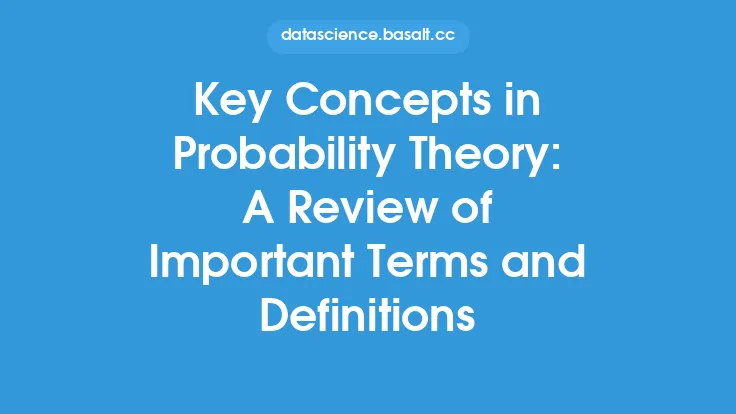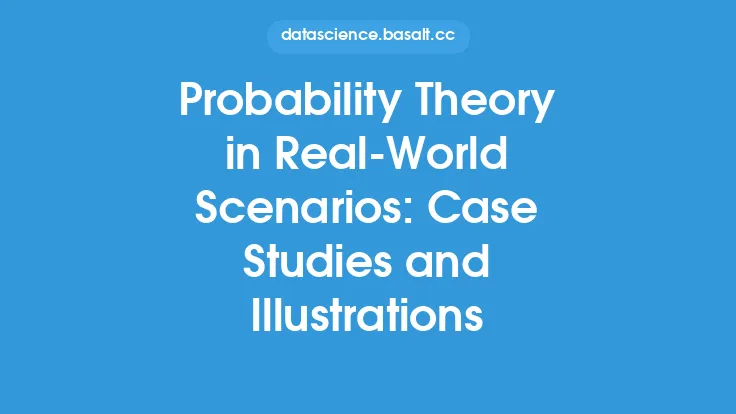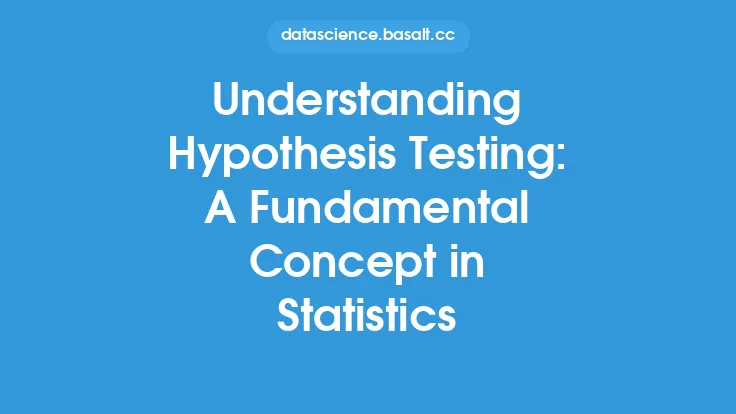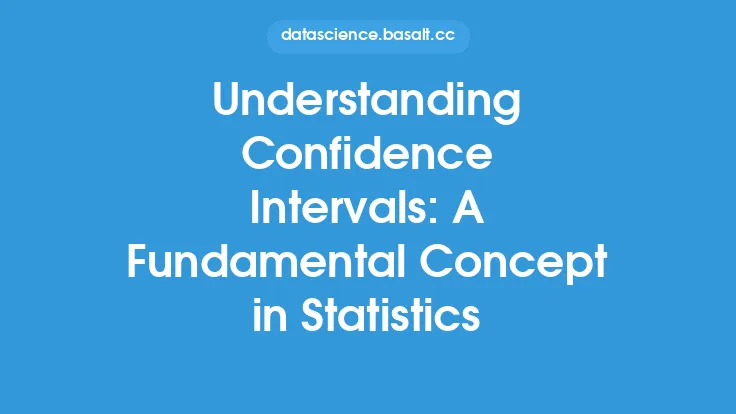Bayes' theorem is a fundamental concept in probability theory, named after the 18th-century British mathematician Thomas Bayes. It is a mathematical formula that describes how to update the probability of a hypothesis based on new evidence. The theorem has far-reaching implications in various fields, including statistics, engineering, economics, and computer science. In this article, we will delve into the details of Bayes' theorem, its derivation, and its applications.
Introduction to Bayes' Theorem
Bayes' theorem is based on the concept of conditional probability, which is the probability of an event occurring given that another event has occurred. The theorem states that the probability of a hypothesis (H) given new evidence (E) is proportional to the probability of the evidence given the hypothesis, multiplied by the prior probability of the hypothesis. Mathematically, this can be expressed as:
P(H|E) = P(E|H) \* P(H) / P(E)
where P(H|E) is the posterior probability of the hypothesis given the evidence, P(E|H) is the likelihood of the evidence given the hypothesis, P(H) is the prior probability of the hypothesis, and P(E) is the marginal probability of the evidence.
Derivation of Bayes' Theorem
The derivation of Bayes' theorem is based on the definition of conditional probability. Let's consider two events, A and B. The conditional probability of A given B is defined as:
P(A|B) = P(A ∩ B) / P(B)
where P(A ∩ B) is the probability of both A and B occurring, and P(B) is the probability of B occurring.
Using this definition, we can derive Bayes' theorem as follows:
P(H|E) = P(H ∩ E) / P(E)
= P(E|H) \* P(H) / P(E)
The first step is based on the definition of conditional probability, and the second step is based on the multiplication rule of probability.
Interpretation of Bayes' Theorem
Bayes' theorem provides a way to update the probability of a hypothesis based on new evidence. The posterior probability of the hypothesis given the evidence, P(H|E), is a measure of the probability of the hypothesis after taking into account the new evidence. The likelihood of the evidence given the hypothesis, P(E|H), is a measure of how well the hypothesis predicts the evidence. The prior probability of the hypothesis, P(H), is a measure of the probability of the hypothesis before taking into account the new evidence.
The marginal probability of the evidence, P(E), is a normalizing constant that ensures that the posterior probability is a valid probability distribution. It can be calculated as the sum of the probabilities of the evidence given each possible hypothesis, weighted by the prior probabilities of the hypotheses.
Applications of Bayes' Theorem
Bayes' theorem has numerous applications in various fields, including:
- Statistics: Bayes' theorem is used in statistical inference to update the probability of a hypothesis based on new data.
- Engineering: Bayes' theorem is used in signal processing and control systems to update the probability of a system's state based on new measurements.
- Economics: Bayes' theorem is used in econometrics to update the probability of a economic model based on new data.
- Computer Science: Bayes' theorem is used in machine learning and artificial intelligence to update the probability of a hypothesis based on new data.
Examples of Bayes' Theorem
Here are a few examples of Bayes' theorem in action:
- Medical Diagnosis: A doctor wants to determine the probability that a patient has a disease based on the results of a medical test. The prior probability of the disease is 0.1, and the likelihood of a positive test result given the disease is 0.9. If the test result is positive, the posterior probability of the disease can be calculated using Bayes' theorem.
- Quality Control: A manufacturer wants to determine the probability that a batch of products is defective based on the results of a quality control test. The prior probability of a defective batch is 0.05, and the likelihood of a failed test result given a defective batch is 0.8. If the test result is failed, the posterior probability of a defective batch can be calculated using Bayes' theorem.
Limitations of Bayes' Theorem
While Bayes' theorem is a powerful tool for updating probabilities based on new evidence, it has some limitations. One of the main limitations is that it requires a prior probability distribution over the hypotheses, which can be difficult to specify in practice. Additionally, Bayes' theorem assumes that the likelihood of the evidence given the hypothesis is known, which can be difficult to model in complex systems.
Conclusion
Bayes' theorem is a fundamental concept in probability theory that provides a way to update the probability of a hypothesis based on new evidence. The theorem has far-reaching implications in various fields, including statistics, engineering, economics, and computer science. While it has some limitations, Bayes' theorem remains a powerful tool for making informed decisions under uncertainty. By understanding the principles of Bayes' theorem, practitioners can develop more accurate and robust models of complex systems, and make better decisions based on data.





